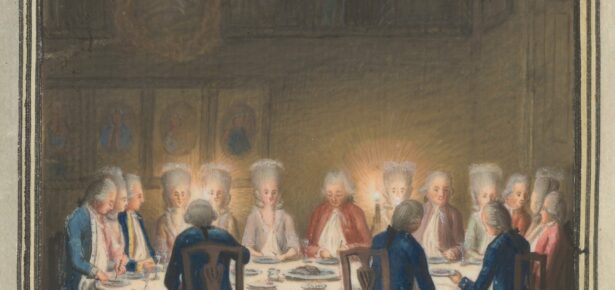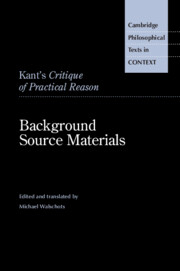
The eighteenth-century German philosopher Immanuel Kant (1724–1804) became a towering figure in the history of Western philosophy because his thinking was revolutionary in many ways. Take one of his famous doctrines as an example: with what he called ‘transcendental idealism’ Kant believed he was radically reconceiving the nature of knowledge and reality in a way similar to how Copernicus changed the way we think about planetary motion. As he writes in the Critique of Pure Reason: just as Copernicus proposed that the sun does not revolve around the earth, but the earth around the sun, Kant claims that “Up to now it has been assumed that all our cognition must conform to objects … Hence let us once try whether we do not get farther with the problems of metaphysics by assuming that the objects must conform to our cognition.”
Kant’s thinking was equally revolutionary in the discipline of moral philosophy. His notion of the ‘categorical imperative’, for instance, captures the idea that moral obligations are universal and necessary, and thus apply to all peoples at all times throughout history. Kant even goes so far as to say that all previous moral philosophers were in error about the nature of obligation because they assumed what Kant calls ‘heteronomy of the will’, that is, that we only ever ought to do something because we desire something else. Kant claims that his moral philosophy is unique because it is the first to be based on ‘autonomy of the will’, namely the idea that we ought to act in certain ways unconditionally and thus independently of what we desire.
The revolutionary character of Kant’s philosophy can, however, be misleading. By boldly asserting that his thinking breaks sharply with the philosophical tradition that came before him, Kant encourages his readers to think that he was not at all influenced by the thought of his predecessors and contemporaries. One might therefore be excused for thinking that little if anything could be gained by situating Kant’s thought in its historical context.
In Kant’s Critique of Practical Reason: Background Source Materials I illustrate that nothing could be further from the truth. In fact (and as I argue in the General Introduction), the Critique of Practical Reason (first published in 1788) might have never existed if it were not for the early, often critical reactions to two of Kant’s previous works, the Critique of Pure Reason (1781) and Groundwork of the Metaphysics of Morals (1785). I demonstrate that Kant was aware of and read many reviews of these works as well as their first book-length commentaries, which encouraged him to realize that he needed to further develop, refine, and perhaps even change his views on moral philosophy in a second Critique, which he did not originally envision when writing the first.
Which specific texts serve as the most important background source materials to the second Critique is not easy to determine, however, because it is often only very implicit when Kant is engaging with other philosophers. Even when this is somewhat clear, Kant rarely mentions his interlocutors by name (except, interestingly enough, when they are already dead). To make things even more difficult, most of the background source materials collected in this book are not readily available (even in the original German), so readers seeking to understand Kant’s ethics in historical context are faced with numerous hurdles to overcome.
This volume promises to make things substantially easier for scholars and students of Kant’s philosophy by translating into English (in almost all cases for the very first time) the most important texts that situate the second Critique in its historical context. In fact, the volume promises to do much more than this. Part I, for instance, entitled ‘Pre-Kantian Moral Philosophy’, contains selections from the ethics textbooks written by Christian Wolff and Christian August Crusius, arguably the two most important moral philosophers writing in German during the eighteenth-century prior to Kant. The translations in Part I therefore serve as background source materials for not only the second Critique, but for all of Kant’s major texts on moral philosophy.
In Part II, ‘Between the Critiques’, I offer five translations: three reviews (two of the Groundwork and one of the first commentary on the first Critique), selections from the first book-length commentary on the Groundwork, and an early reply to Kant’s ‘Orientation’ essay. These translations are profoundly important as background source materials to the second Critique because Kant was aware of and responds to them all at various points in that book. But their importance goes beyond this by offering an insight into the immediate reception of the works they engage with as well.
Finally, Part III, ‘The Reception of the Critique of Practical Reason’, contains translations of three reviews of the second Critique, as well as a selection from a longer text, which collectively offer a diverse insight into the early reception of the second Critique. As such, the texts in Part III also serve as background source materials to some of Kant’s later writings, especially when he explicitly responds to them. I indicate details such as this in the introductions to each of the eleven chapters, which briefly sketch the life and works of the author, indicate the relevance of the translated text for the second Critique, as well as provide an overview of the text’s key points.
I intend this volume to be an important resource for scholars and students seeking to better understand many of Kant’s major writings on moral philosophy. I also hope it illustrates the extent to which Kant’s ethics is grounded in its historical context, and thus that, despite first appearances, Kant is best understood when read alongside the writings of his contemporaries and predecessors.

Kant’s Critique of Practical
Reason by Michael Walschots
Latest Comments
Have your say!